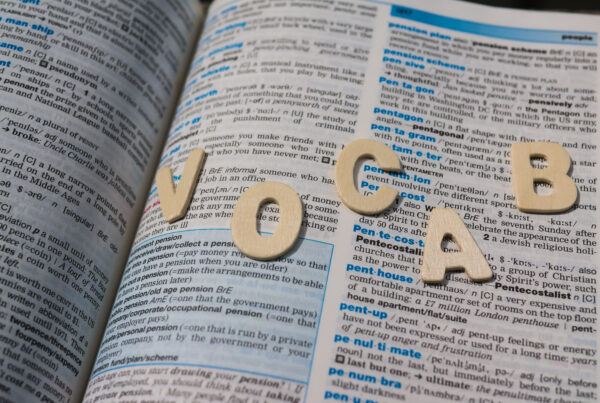Preparing for the SAT or ACT can be hard, especially when it comes to mastering vocabulary. A strong vocabulary is crucial for success in the verbal sections of these exams. Drawing from expert recommendations, here’s a guide to improving your vocabulary for the SAT/ACT.
1. Utilize Flashcards Effectively
Flashcards are a tried-and-true method for vocabulary building. Here’s how to make the most of them:
Create Your Own Flashcards: Instead of buying pre-made flashcards, create your own. This process itself is a learning experience. Use comprehensive lists like those from SparkNotes, Greenville ISD, and Vocabulary.com to guide your selections.
Regular Review: Review your flashcards regularly. This repetition will reinforce your memory and help you retain the words.
Stop Skipping Words: Make a note card for any word you come across that you don’t know, whether you read it in a book or hear it in conversation. This habit will ensure you continuously expand your vocabulary with relevant words.
2. Invest in Quality Vocabulary Books
One of the most effective ways to expand your vocabulary is through targeted study using reputable resources. Here are a couple of highly recommended books:
Erica Meltzer’s Digital SAT Vocabulary Book: This book is praised for its thorough approach to SAT vocabulary. Erica Meltzer’s materials are well-regarded for all things SAT and ACT verbal.
Word Power Made Easy by Norman Lewis: This classic book focuses on etymology and word groupings, making it easier to remember words by understanding their roots. It’s a fantastic resource for building a strong foundational vocabulary.
Barron’s 1100 Words You Need to Know: This book is another excellent resource. It encourages the use of note cards to learn 50+ words a week, helping to create connections between words and improve recall.
3. Daily Reading and Word Lookup
Assign yourself 30 minutes of reading each day. Here’s how to maximize this practice:
Choose Diverse Materials: Read a variety of materials, including novels, newspapers, and scientific articles. This diversity will expose you to different types of vocabulary.
Look Up Unfamiliar Words: Whenever you encounter a word you don’t know, look it up immediately. Make a note card for each new word to ensure you remember it.
4. Online Resources and Games
Leverage online resources and vocabulary games to make learning more engaging:
Magoosh Vocab Builder App: They offer tailored practice sets for different difficulty levels of words on the SAT/ACT. They used spaced repetition to maximize content retention.
FreeRice.com: This website offers vocabulary games that were originally populated with SAT words. It’s a fun way to practice and also contributes to a good cause.
5. Focus on Word Roots, Prefixes, and Suffixes
Understanding the building blocks of words can significantly boost your vocabulary:
Make Notecards for Roots and Affixes: Create flashcards for common prefixes, suffixes, and root words. Resources like Reading Rockets offer extensive lists to get you started.
Practice Identifying Components: When you encounter a new word, try to break it down into its components. This practice will help you deduce the meanings of unfamiliar words in the future.
Practice with Sample Questions and Worksheets
Practical application is crucial for retention and understanding. Here are some ways to practice:
Barron’s Practice Questions: Pages 103-109 of Barron’s book offer additional practice questions that can help you apply what you’ve learned in a test-like setting.
Diction/Word Choice Worksheets: Utilize worksheets focused on diction and word choice to refine your understanding of word nuances and contexts.
7. Consistency and Patience
Building a substantial vocabulary is a long-term commitment. Here are some tips to stay on track:
Set Realistic Goals: Aim to learn a certain number of new words each week. For example, 50 new words per week is a challenging but attainable goal.
Track Your Progress: Keep a journal of the words you’ve learned and review it periodically. Seeing your progress can be motivating.
Stay Persistent: There will be times when the process feels tedious. Remember that consistency is key, and the effort will pay off in improved test scores.
Conclusion
Improving your vocabulary for the SAT or ACT requires a multifaceted approach, combining quality resources, consistent practice, and engaging methods. By investing time in reading, creating personalized flashcards, utilizing online tools, and understanding word roots, you can build a robust vocabulary that will serve you well on test day and beyond. Stay persistent, and your hard work will lead to significant improvements in your verbal skills.
Interested in learning more about Test Prep at Mindfish?
Contact us today to find out what our dedicated tutors can help you achieve.





